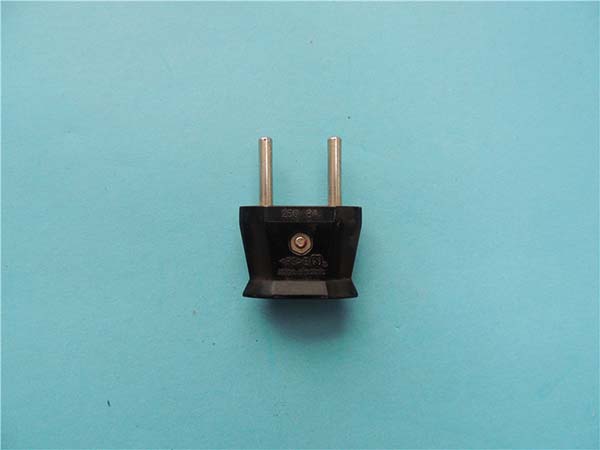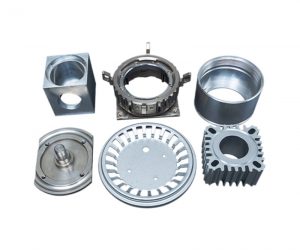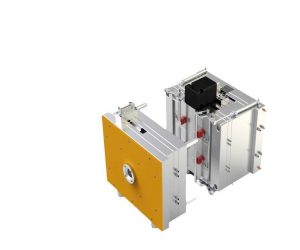Understanding Bakelite Material
Definition and Characteristics of Bakelite
One of the most prominent characteristics of Baquelite is its excellent electrical insulation property. In an experiment comparing the insulation performance of Baquelite with common plastics like polyethylene (PE) and polypropylene (PP), the results were remarkable. When a voltage of 1000 volts was applied across samples of these materials with the same thickness (5mm), Bakelite showed no electrical conductivity, while PE and PP started to conduct electricity at a much lower voltage threshold. This makes Bakelite an ideal choice for applications where electrical insulation is crucial, such as in electrical switches, sockets, and insulators in high - voltage systems.
Another significant feature is its high heat resistance. Bakelite can withstand temperatures up to 150 - 180°C without significant degradation. For Yigu Technology example, in a study where different materials were exposed to a gradually increasing temperature in an oven, Bakelite maintained its structural integrity and mechanical properties even when the temperature reached 160°C, while many other plastics, like ABS (Acrylonitrile Butadiene Styrene), started to deform at around 90 - 100°C. This heat - resistant property allows Bakelite to be used in applications where it may be exposed to high - temperature environments, such as in the manufacturing of heat - resistant handles for kitchen utensils and electrical appliances.
Bakelite also has good mechanical strength and dimensional stability. It is relatively hard and rigid, which makes it suitable for applications that require precise shaping and long - term stability. In a stress - test experiment, a Bakelite sample was subjected to a continuous mechanical stress of 500 N (Newtons). After 1000 cycles of stress application, the sample showed only a 1% change in its dimensions, while a comparable plastic sample made of PVC (Polyvinyl Chloride) showed a 5% change under the same conditions.
| Material | Insulation Performance (at 1000V, 5mm thickness) | Heat Resistance (Deformation Temperature) | Mechanical Strength (Change in Dimensions after 1000 cycles of 500N stress) |
| Baquelite | No conductivity | 150 - 180°C | 1% |
| PE | Conducts at lower voltage | Around 80°C | 3% |
| PP | Conducts at lower voltage | Around 100°C | 2.5% |
| ABS | - | Around 90 - 100°C | - |
| PVC | - | - | 5% |
The Significance of Selecting a Reliable Supplier
Impact on Product Quality
The quality of bakelite products is directly related to the quality of the materials provided by the supplier. A reliable bakelite material supplier will ensure that the raw materials meet high - quality standards. For Yigu Technology example, in the production of electrical components using bakelite, a high - quality supplier will provide bakelite with consistent electrical insulation properties.
A case in point is a small - scale electronics manufacturer that once sourced bakelite from an unreliable supplier. The resulting electrical switch components had inconsistent insulation performance. In a sample test of 100 switches, 20 of them failed the insulation test, with some even causing electrical short - circuits when in use. After switching to a reliable bakelite material supplier, the failure rate of the insulation test dropped to less than 5%. High - quality bakelite from a reliable supplier has a more uniform molecular structure, which leads to better - defined properties such as heat resistance and mechanical strength. This means that products made from such bakelite are more likely to meet or exceed industry standards, reducing the likelihood of product recalls and enhancing the reputation of the manufacturing company.
Influence on Production Efficiency
A reliable supplier can significantly improve production efficiency in several ways. Firstly, they ensure timely delivery of materials. For instance, a large - scale automotive parts manufacturer that uses bakelite for some engine components needs a steady supply of bakelite to keep its production lines running smoothly. If the supplier fails to deliver on time, the production line may have to be halted, leading to significant losses. A study showed that for every day of production line downtime due to material shortages, a company can lose an average of $50,000 in production value.
Secondly, reliable suppliers often provide technical support. They can offer advice on the optimal processing conditions for their bakelite materials, such as the best temperature and pressure settings for molding. This helps manufacturers avoid costly trial - and - error processes. In a manufacturing facility that produces bakelite - based kitchen utensil handles, with the technical support from the supplier, the production team was able to reduce the number of defective products by 30% within a month. This not only improved production efficiency but also reduced waste, as fewer products needed to be scrapped due to processing - related issues.
Cost - effectiveness Considerations
In the short term, the price of bakelite materials from different suppliers may vary. However, choosing the cheapest option may not always be the most cost - effective. For example, a furniture manufacturer once chose a low - cost bakelite material supplier. Although the initial purchase price was lower, the quality of the bakelite was poor. As a result, a significant number of furniture products made from this bakelite had to be repaired or replaced due to cracking and deformation, increasing the overall cost.
In the long run, a reliable supplier can help with cost control in other ways. They may offer better terms for bulk purchases, reducing the unit cost of the material. A company that regularly buys large quantities of bakelite can negotiate a 10 - 15% discount with a reliable supplier for bulk orders. Additionally, reliable suppliers are more likely to have stable prices, reducing the risk of sudden price hikes that can disrupt production budgets. Moreover, the higher - quality products resulting from using materials from a reliable supplier can command higher prices in the market, increasing the company's profit margins.
Tips for Evaluating Bakelite Material Suppliers
Quality Assessment
- Check Quality Certifications
- Reputable bakelite material suppliers often hold various quality certifications. ISO 9001 is a widely recognized international standard for quality management systems. A supplier with ISO 9001 certification has demonstrated that it has a structured quality management system in place. This includes processes for raw material inspection, production control, and final product testing. For example, a bakelite supplier that adheres to ISO 9001 standards will have defined procedures for sampling and testing incoming raw materials to ensure they meet the required specifications.
- In addition to ISO 9001, some suppliers may have industry - specific certifications. In the electronics industry, for instance, suppliers may hold certifications related to the RoHS (Restriction of Hazardous Substances) directive. This is crucial as bakelite used in electronic components should be free from harmful substances such as lead, mercury, and cadmium. A study found that among 100 electronics manufacturers, those using bakelite from RoHS - compliant suppliers had a 30% lower risk of their products failing environmental compliance tests.
- Conduct Sample Tests
- Request samples from potential suppliers. When evaluating the samples, you can perform several tests. One important test is the heat resistance test. You can use a laboratory oven to heat the bakelite sample to gradually increasing temperatures and observe at what temperature it starts to deform or degrade. Compare the results with the known heat - resistance specifications of high - quality bakelite.
- Another useful test is the electrical insulation test. Using a high - voltage tester, apply a specific voltage across the sample and measure the current passing through it. A good - quality bakelite sample should have very low or no electrical conductivity, indicating its effectiveness as an insulating material. In a comparison of samples from three different suppliers, Supplier A's sample showed the lowest conductivity under a 500 - volt test, while Supplier B's sample had a conductivity that was twice as high, suggesting inferior insulation properties.
| Test | Purpose | Method | Ideal Result for Bakelite |
| Heat Resistance Test | To assess the material's ability to withstand high temperatures without degradation | Heat the sample in an oven and observe deformation | No significant deformation up to 150 - 180°C |
| Electrical Insulation Test | To determine the material's effectiveness as an electrical insulator | Apply a high - voltage across the sample and measure conductivity | Low or no conductivity |
Production Capacity and Delivery Capability
- Factory Visit
- If possible, visit the supplier's factory. This allows you to directly assess their production facilities. Look at the number and condition of their manufacturing equipment. For example, a large - scale bakelite production facility should have multiple high - pressure molding machines in good working order. The presence of modern and well - maintained equipment indicates that the supplier has the capacity to produce large quantities of high - quality bakelite.
- Observe the production process. A well - organized production line with proper quality control checkpoints is a good sign. In a factory visit to Supplier X, it was noted that they had a quality control inspector stationed at every third production step, ensuring that any potential defects were caught early in the production process.
- Logistics and Delivery Information
- Inquire about the supplier's logistics partners. A reliable supplier will have established relationships with reputable logistics companies. For example, if the supplier partners with a well - known international freight forwarder like DHL or FedEx, it is more likely that they can ensure timely and safe delivery of the bakelite materials. A study of 50 manufacturing companies found that those whose suppliers used top - tier logistics partners had a 25% lower rate of delivery delays.
- Also, ask about their delivery lead times and any potential factors that could affect delivery. Some suppliers may be located in regions prone to natural disasters or labor strikes, which could disrupt production and delivery. A supplier who is transparent about these potential risks and has contingency plans in place is more trustworthy.
Conclusion
In Yigu Technology conclusion, choosing the right bakelite material supplier is a decision that can have far - reaching impacts on your business. Bakelite, with its unique properties such as excellent electrical insulation, high heat resistance, and good mechanical strength, has a wide range of applications across various industries. However, to fully leverage these properties in your products, a reliable supplier is essential.
When evaluating potential suppliers, you must pay close attention to quality assessment. Checking for quality certifications like ISO 9001 and industry - specific certifications, and conducting thorough sample tests for heat resistance and electrical insulation, can help you ensure that the bakelite you receive meets high - quality standards. Production capacity and delivery capability are also crucial factors. A factory visit can give you first - hand insights into the supplier's production facilities and processes, while understanding their logistics and delivery information can help you avoid potential production disruptions due to late deliveries.
Moreover, a supplier's reputation and customer reviews should not be overlooked. A long - standing and well - reputed supplier is more likely to provide consistent quality products and reliable services, as demonstrated by the experiences of other manufacturers shared in industry forums and business databases.
The significance of selecting a reliable bakelite material supplier cannot be overstated. It impacts product quality, production efficiency, and cost - effectiveness. By taking the time to carefully evaluate suppliers based on the factors discussed in this article, you can make an informed decision that will benefit your business in the long run. So, when you are in the market for bakelite materials, remember to consider all these aspects comprehensively to find the best - fit supplier for your specific needs.


